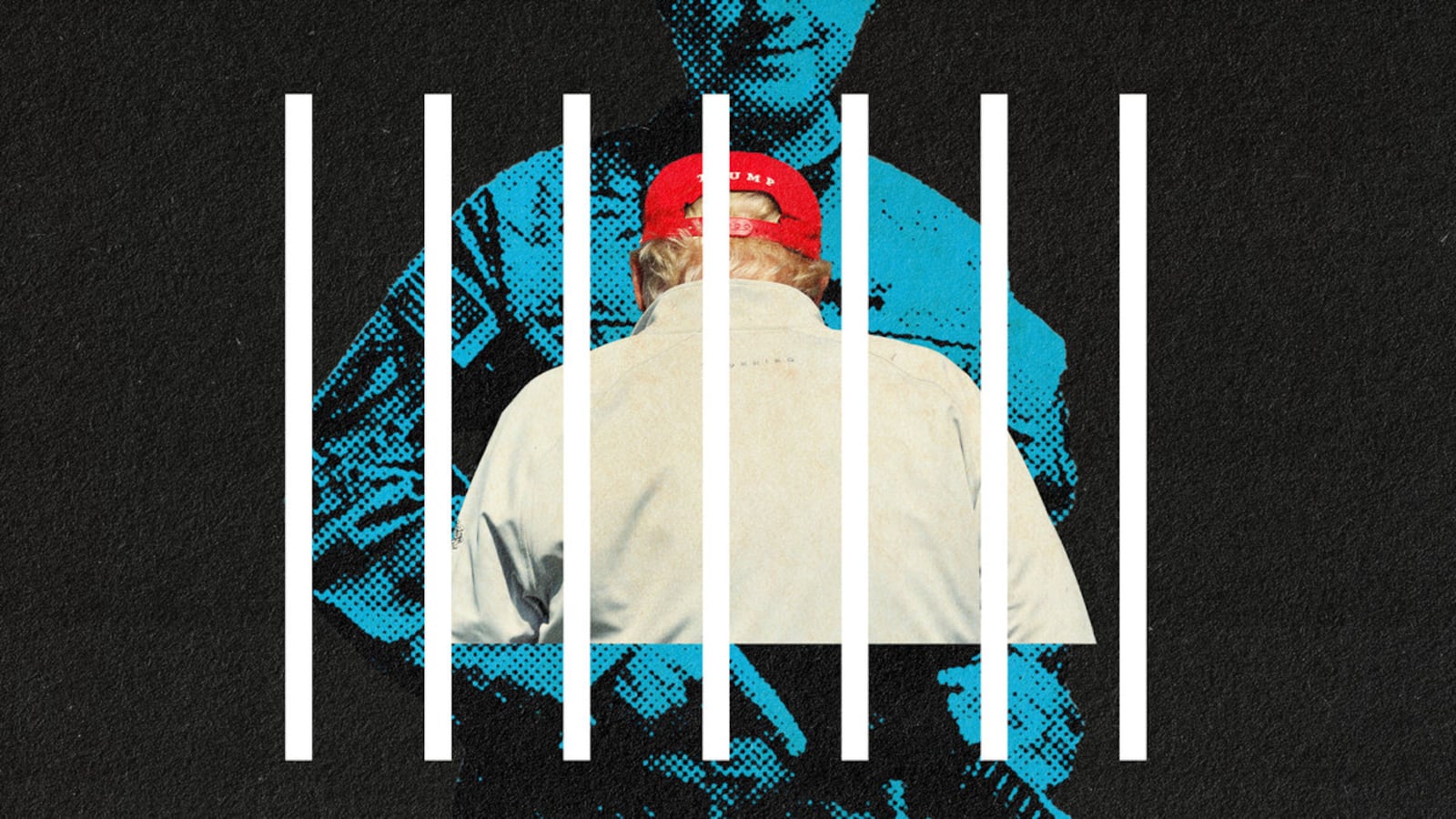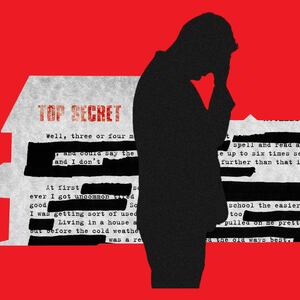Anybody who thinks Donald Trump was unfairly indicted for keeping classified documents should consider the case of Robert Birchum, who has been sentenced to prison for the very same crime even though he was a decorated Air Force special forces officer who retired on 100 percent psychiatric disability officially deemed “combat-related.”
Back in January 2017, investigators with the Air Force Office of Special Investigations (AFOSI), acting on a tip, searched Lt. Col. Birchum’s home in Tampa, Florida, just as FBI agents later searched Trump’s residence in Palm Beach. The object of both searches was the same: to find unlawfully retained classified documents.
Investigators found a thumb drive and numerous classified documents stashed in Birchum’s house and in a storage pod parked in his driveway, just as the FBI would find numerous classified documents in a storage room at Mar-a-Lago. They also found a hard drive containing classified files in Birchum’s quarters in Afghanistan, where he was on his sixth and final combat deployment despite having been diagnosed with PTSD that required hospitalizations.
There are at least two major differences in the case. One is that Birchum has no prior criminal history, whereas Trump has been indicted for falsifying business records. The other difference is that Trump has continued to deny and stonewall and obstruct, whereas Birchum owned up to it immediately.
“He cooperated with Air Force authorities when questioned about this offense and submitted to a proffer session with the government, providing detailed information,” Birchum’s pre-sentencing memorandum says. “Mr. Birchum’s actions demonstrate his acceptance of responsibility and his true remorse for his conduct and his substantial attempt to make amends for his transgressions in mishandling the classified information in his possession.”
Last August, Birchum pleaded guilty to one felony count of “unlawfully possessing and retaining classified documents relating to the national defense of the United States.” He sought to avoid a prison sentence, citing 29 years of distinguished and harrowing service in the Air Force. His pre-sentencing report notes that he was in the Pentagon on 9/11 when a hijacked jetliner struck the complex. And he remained at war right up to 2018, when he received a medical retirement.
He was “engaged in daily small arms fire” while overseas and testified to “receiving frequent small arms fire and other directed fire while transporting insurgents in rotary wing aircraft and returning fire in these situations,” his medical records report. “Lt. Col. Birchum also testified to multiple ‘hard landings’ in rotary wing aircraft.”
His Air Force evaluations describe him as “superb” and “brilliant”—words no sane person has ever used in connection with Trump. Court papers say he was at one point “the top air intelligence expert at the Joint Special Operations Command.” Trump, you might recall, dodged the military because of supposed heel spurs.
“During one deployment, intelligence assessments produced by Mr. Birchum supported over 40 strikes against foreign terror networks resulting in the capture or killing of over 800 enemy combatants intent on killing Americans,” court papers say.
His pre-sentencing memo notes that among other decorations he received a Bronze star for being part of a team that tracked down and eliminated insurgents who had shot down eight helicopters, killing 23 U.S. service members.
Birchum’s medical records report that he was scarred by a childhood “where he experienced neglect, malnourishment, and abuse (mental, emotional, physical, and sexual)”—quite a contrast to Trump’s early life of luxury with a father who bankrolled his business career. Birchum’s trauma and PTSD had resulted in “suicidal ideations and two actual attempts, multiple inpatient hospitalizations, and being prescribed psychotropic medications.”
In a letter to the sentencing judge, Birchum’s wife, Cristina, wrote, “The loss of teammates killed in action and his own return home while some didn’t, weighed heavily on him.”
Cristina Birchum— a civilian intelligence analyst who met her husband when they both worked at the Pentagon—added, “In the summer of 2008, he started experiencing nightmares, crawling on the floor in the middle of [the] night, along with the many effects of PTSD.”
She said Birchum began psychiatric treatment “after being told that he, too had wounds, and, although they were invisible, they were wounds, nonetheless.”
He was in treatment when he was deployed for in May 2016 to Afghanistan for a one-year mission. She described this last deployment in the midst of being treated for the effects of the previous five, as “the pinnacle of service over self, which was Rob’s life story.”
In their own pre-sentencing memo, federal prosecutors noted that unlawfully retaining classified documents was still a serious matter, even if there was no indication that Birchum intended to do anything beyond hoarding them.
“The Defendant’s offense conduct in this case is an egregious example of willful retention,” the memo says.
One section of the document that contains a principle applicable to all defendants of whatever station in life is titled “The Need to Avoid Unwarranted Sentence Disparities.” In it, prosecutors noted the outcome of several similar retention cases: An NSA contractor got 108 months; an NSA staffer got 68 months; a retired Army special forces master sergeant got 66 months.
On June 1, U.S. District Judge Kathryn Kimball Miz took Birchum’s life story into account and sentenced him to three years, a reasonable minimum for endangering national security, and directed that he receive “proper and necessary mental health treatment.”
On Thursday evening came the news that Trump has been indicted for his handling of classified documents and obstructing the ensuing investigation. Should he be convicted, he will appear for sentencing as someone who has been all about self over service. And, former president or not, it would be hard to argue that he should get anything less than the combat veteran who will soon become Inmate 45400-510.








